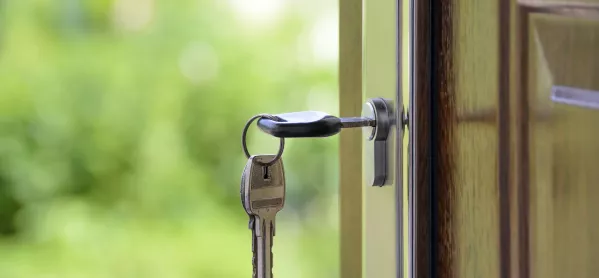The Department for Education could help 20 schools generate windfalls of up to £15 million by selling off surplus land for new housing, it has been revealed.
The schools are among around 100 that a pilot scheme run by the DfE’s property company, LocatEd, has identified. The schools have estates in poor condition and land they do not require, and are in areas with a pressing need for new housing.
Examples of surplus land outlined at the Schools and Academies Show today include car parks, swimming pools, mothballed buildings, dilapidated tennis courts and informal recreation areas.
Quick read: DfE spent millions on free-school property company
LocatED: Boss got bonus despite missing target
Teacher housing: Schools may be allowed to build new homes
David Shand, head of the DfE’s land policy team, said: “Essentially, we have to think of the school estate as a flexible asset, and all assets need to be achieving the best possible value. The way that you do that is through using the flexibility that exists within them.
“Under-utilised school sites could potentially deliver great benefits to the system.
“They could generate capital receipts that you can possibly put back into school improvements. Alternatively, reconfigure the school sites and improve the facilities to deliver greater opportunities for revenue generation.”
Sue Corbett, senior development manager at LocatED - which was originally set up by the DfE to buy sites for free schools - said that capital receipts identified by the pilot scheme ranged from £100,000 to £15 million.
She said this money could be used for projects ranging from complete school rebuilds to a new roof, a new annex or a new sports hall.
Ms Corbett said: “These are like infill sites, so pockets of land within the school estate that would not be a loss. We have seen lots of spaces that have actually been fenced off because they are in parts of the school site that attract naughty behaviour.
“We have a couple of schemes that have the potential to be completely cross-subsidised by building on the school footprint and putting residential above that.”
She said that LocatED is currently whittling the list of 100 sites down to 10-20 projects that it would recommend to the education secretary to go forward.
She added that she hoped the pilot would be rolled out further.
Mr Shand told the audience that the scheme was part of the government’s wider push to increase housing supply.
He said that the complex picture of land ownership in the school system was a challenge, with the DfE owning less than 1 per cent of the school estate centrally, and only about one in 10 schools owning their own land.
Most school land is owned by local authorities or dioceses.
He said this meant that the DfE’s role was to make landowners aware of the possibilities that exist.
Mr Shand stressed that the disposal of any land was always a decision for the freehold owner, and it was “absolutely not about the department forcing any schools to dispose of land”.




